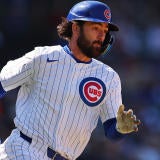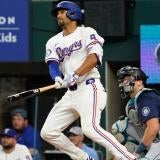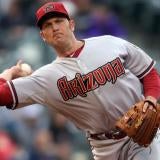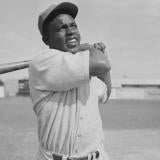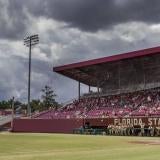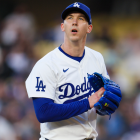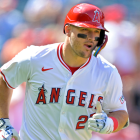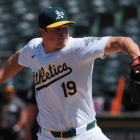
On Friday, the baseball world lost a titan. One of the most legendary figures to ever grace the mound, Hall of Fame Cardinals pitcher Bob Gibson died at age 84 after battling pancreatic cancer for more than a year. The Cardinals confirmed Gibson's death late Friday night to the New York Times.
On Saturday, the Cardinals issued the following statemnet:
"Bob Gibson was arguably one of the best athletes and among the fiercest competitors to ever play the game of baseball," said Cardinals' Principal Owner & Chief Executive Officer William O. DeWitt, Jr. "With yesterday being the anniversary of his record-setting 17 strikeout World Series game in 1968, it brought back many fond memories of Bob, and his ability to pitch at such a high level when the Cardinals were playing on the games' biggest stages. Even during the time of his recent illness, Bob remained a strong supporter of the team and remained in contact with members of the organization and several of our players. He will be sorely missed."
In his 17-year big-league career, Gibson was a nine-time All-Star, winning an MVP, two Cy Youngs, two World Series MVPs, two World Series rings and an ERA title. He was 251-174 with a 2.91 ERA and recorded 3,117 strikeouts in nearly 4,000 innings.
In particular, Gibson was so dominant in 1968 that he's given some level of credit for the lowering of the mound in 1969. In '68, Gibson had a modern MLB record 1.12 ERA with 28 complete games, 13 shutouts and 268 strikeouts in over 300 innings. He famously recorded 17 strikeouts in a Game 1 shutout against the Tigers in the World Series that year. He still holds the record for the most strikeouts in a World Series game for that effort.
It wasn't just 1968 Game 1 that cemented Gibson's status as a big-game pitcher. In nine career World Series starts, Gibson was 7-2 with a 1.89 ERA, 0.89 WHIP and 92 strikeouts in 81 innings. He threw two shutouts in those nine starts. Gibson was also famously intense and competitive to the extent he once continued pitching even after a Roberto Clemente liner had fractured his leg.
A native of Omaha, Nebraska, Gibson was the youngest of seven children and also a skilled basketball player. After he high school, he became the first Black player to receive a basketball scholarship to Creighton University. He eventually became the school's all-time points per game leader. Gibson eventually signed with the Cardinals but also played briefly with the Harlem Globetrotters.
By 1957, he focused solely on baseball. He made his major-league debut in 1959 at the age 23 and by the early 1960s established himself as one of the best pitchers in baseball. Eventually, he would become one of the best pitchers in the history of the sport. He's ranked in the top 15 by JAWS, for those interested in such metrics.
Gibson was inducted into the Baseball Hall of Fame in his first try in 1981 with 84 percent of the vote. He's widely hailed as the greatest pitcher in the storied history of the Cardinals franchise.
Lou Brock, a fellow Cardinals legend who played alongside Gibson in St. Louis, died in September. He was 81.








